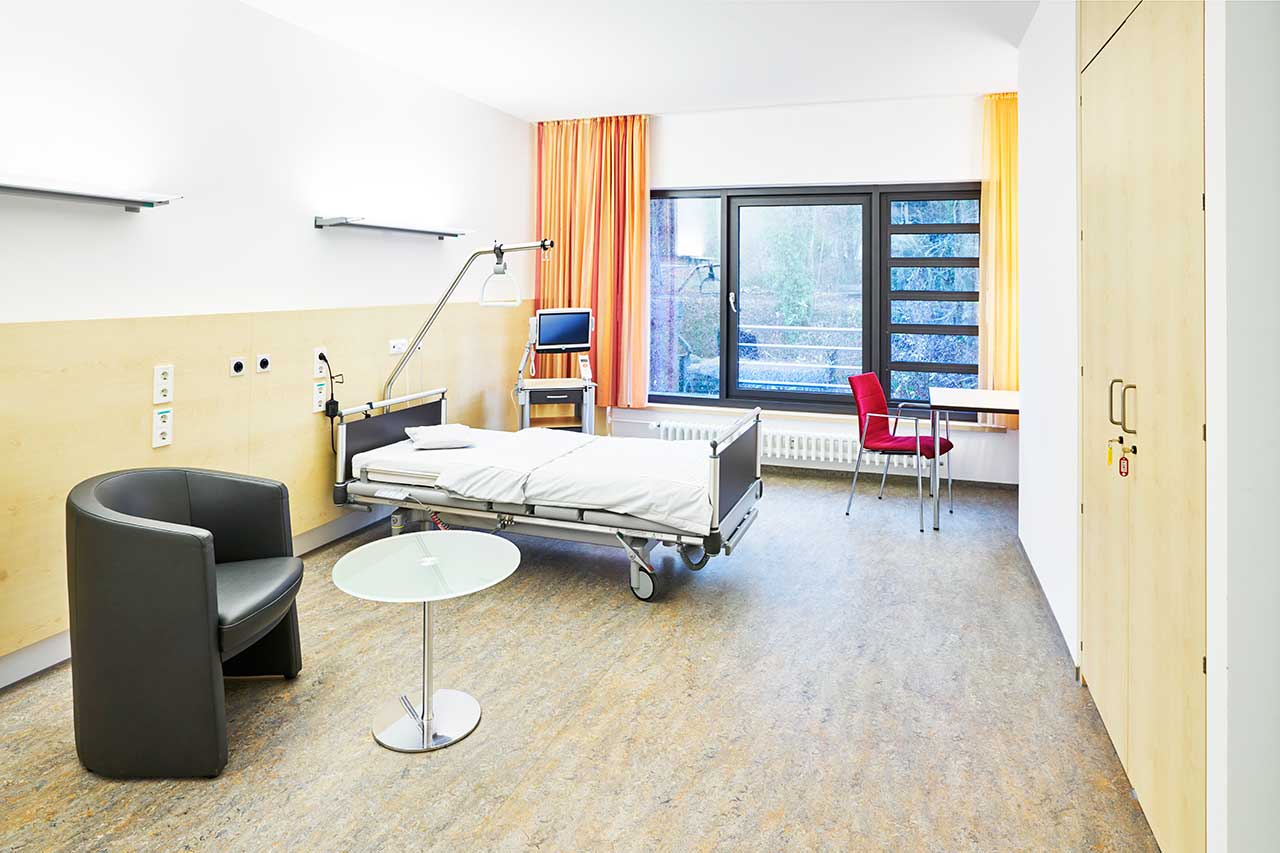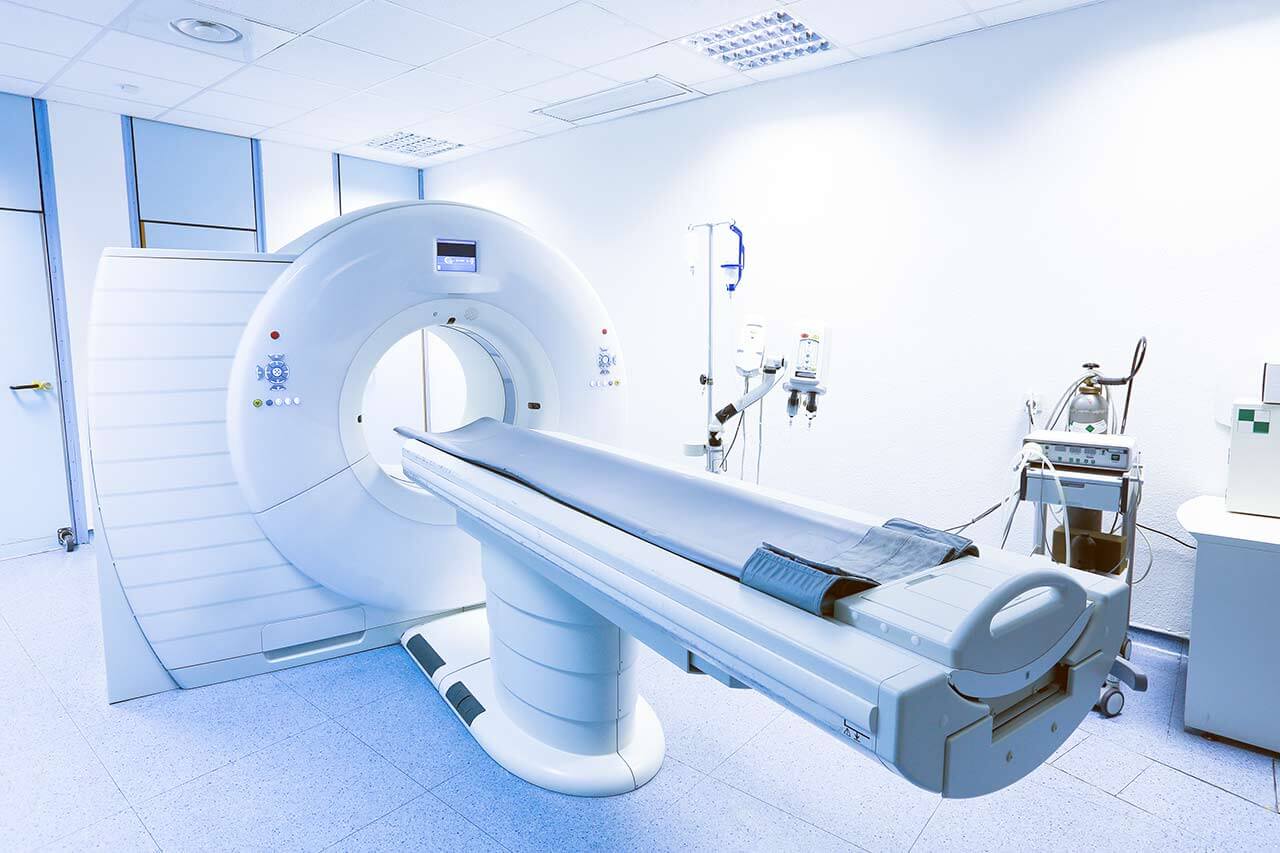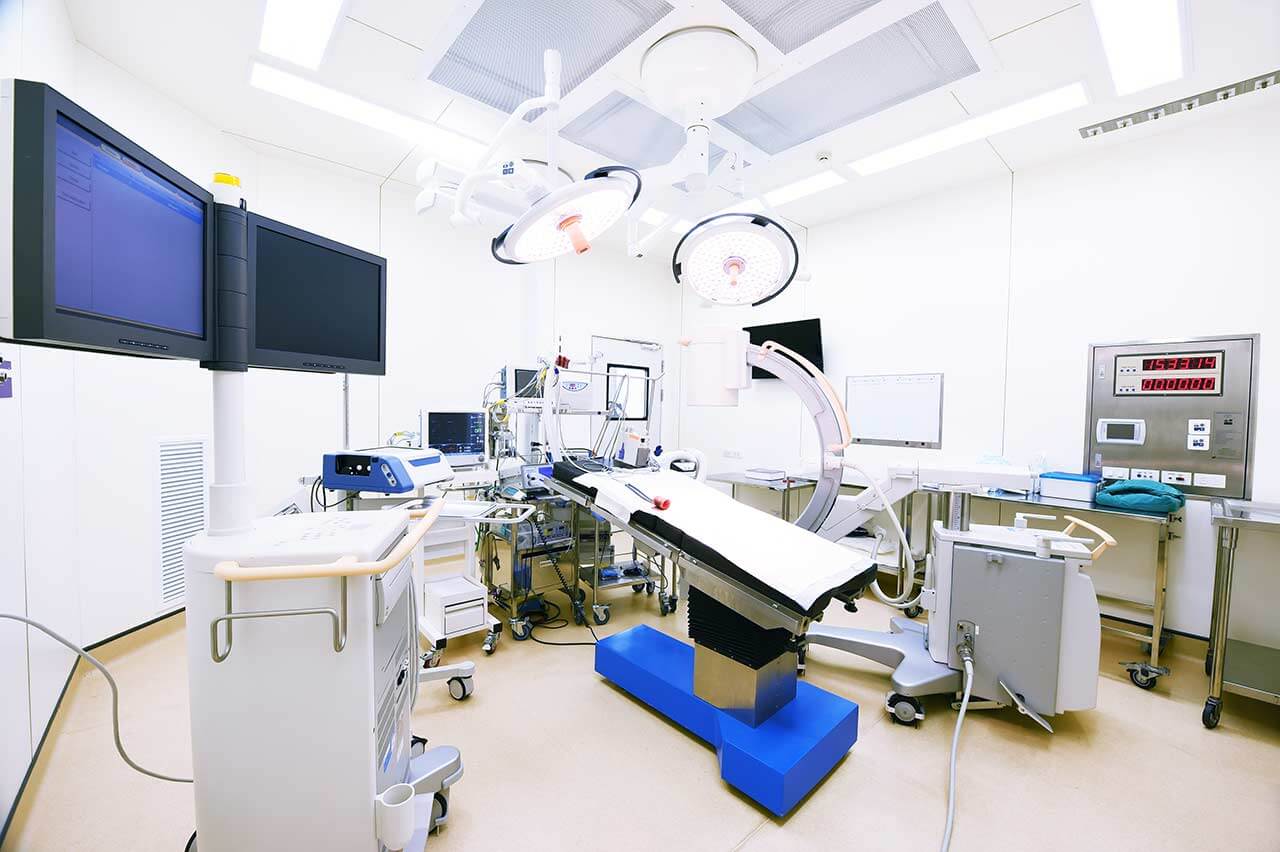
About the Department of Human Genetics at University Hospital Erlangen
The Department of Human Genetics at the University Hospital Erlangen offers the full spectrum of detection, classification and diagnostics of both the discrepancies leading to abnormalities of the genome and the developing pathologic processes. Upon the identification of such disease, the specialists of the department provide the patient and affected family members with information on the disease course features, possible prevention measures or specific treatment techniques as well as on the inheritance pattern and risks of recurrence in children. The chief physician of the department is Prof. Dr. med. André Reis.
The specialists of the department provide genetic counseling for patients with the following indications:
- Hereditary diseases, malformations, growth disorders, developmental delays or mental retardation diagnosed in a family member
- Consanguinity
- Unfulfilled desire to have children
- Recurrent miscarriages and other problems with carrying a pregnancy
- Advanced maternal age (above 35 years) in pregnancy planning
- Extraordinary radiation exposure or medication during pregnancy
- Other diseases
Apart from the genetic counseling, the department of human genetics also offers various cytogenetic and molecular-genetic laboratory services.
Cytogenetic diagnostics includes pre- and postnatal genetic investigations of metaphases and interphase nuclei for detection of numerical and structural chromosomal aberrations (changes in number and structure of the chromosomes) with the aid of classic and molecular cytogenetic (FISH) methods. The postnatal cytogenetic diagnostics is performed by using blood or skin (e.g. fibroblasts obtained through skin biopsy). Depending on the diagnostic purpose, the prenatal investigations can be carried out in amniotic fluid, amniotic cells or chorionic villus cells as well as cord blood.
The molecular genetic laboratory of the department at the University Hospital Erlangen specializes in pre- and postnatal diagnostics of genetically determined diseases with the aid of classic and modern molecular genetic methods.
Indications for use of the molecular-genetic diagnostics:
- Parentage testing
- Fertility disorders
- Short stature / skeletal dysplasia
- Hereditary tumor predisposition
- Connective tissue diseases
- Mental developmental disorder of unexplained etiology
- Developmental disorders / mental retardation
- Metabolic diseases (intolerance to gluten, lactose, fructose, disorders of calcium metabolism and other diseases)
- Cardiac malformations / cardiovascular diseases
- Neurological diseases
- Sensory diseases
- Specific MLPA analysis
- Other diseases
Curriculum vitae
- 1979 - 1986 Study of medicine in Göttingen and Lübeck.
- 1983 - 1986 Doctorate at the Institute for Human Genetics of the Medical University of Lübeck.
- 1987 - 1988 Research associate at the Institute for Human Genetics of the Medical University of Göttingen.
- 1989 - 1998 Teaching and research associate at the Institute for Human Genetics of the Charité, Humboldt University in Berlin, nowadays the Charité-University-Hospital in Berlin.
- 1995 - 2000 Founder and project director of the "Microsatellite Centre/Gene Mapping Centre" at the Max-Delbrück-Centre for Molecular Medicine (MDC), Berlin-Buch.
- 1995 Specialist in human genetics.
- 1995 Habilitation in Human Genetics at the Charité.
- 1998 University Professor (C3) for Medical Genetics and Gene Mapping at the Charité and work group leader at the MDC.
- Since June 2000 Professor for Human Genetics and Director of the Institute for Human Genetics at the University Erlangen Nürnberg.
- Since 2006 Corresponding Member of the Academy of Sciences and Literature, Mainz.
- Since 2007 Speaker of the Interdisciplinary Centre for Clinical Research (IZKF) at the University Hospital Erlangen.
- Since winter semester 2007 Senator at the University Erlangen-Nürnberg.
- Since 2007 Member of the German Academy of Natural Sciences, Leopoldina.
- 2008-2012 Chairman of the German Society for Human Genetics (GfH).
Photo of the doctor: (c) Universitätsklinikum Erlangen




